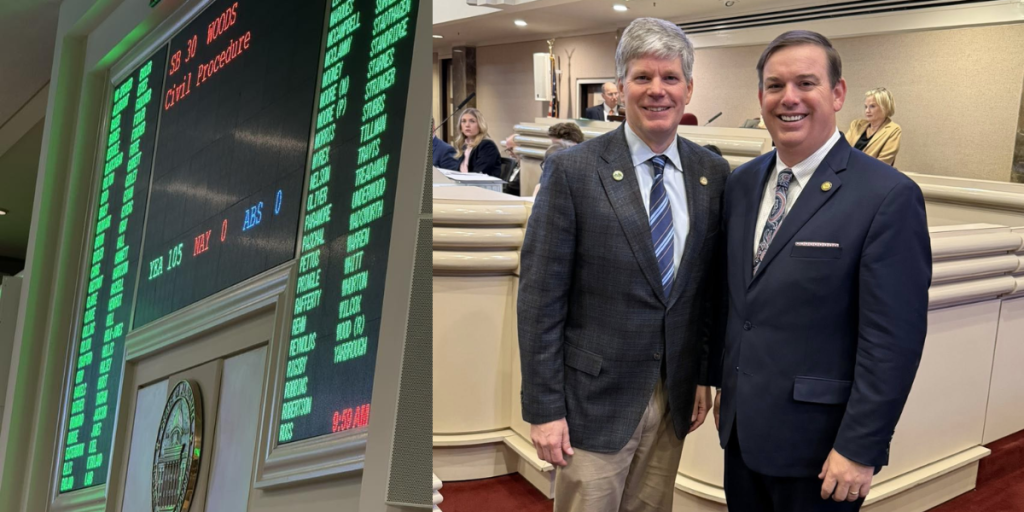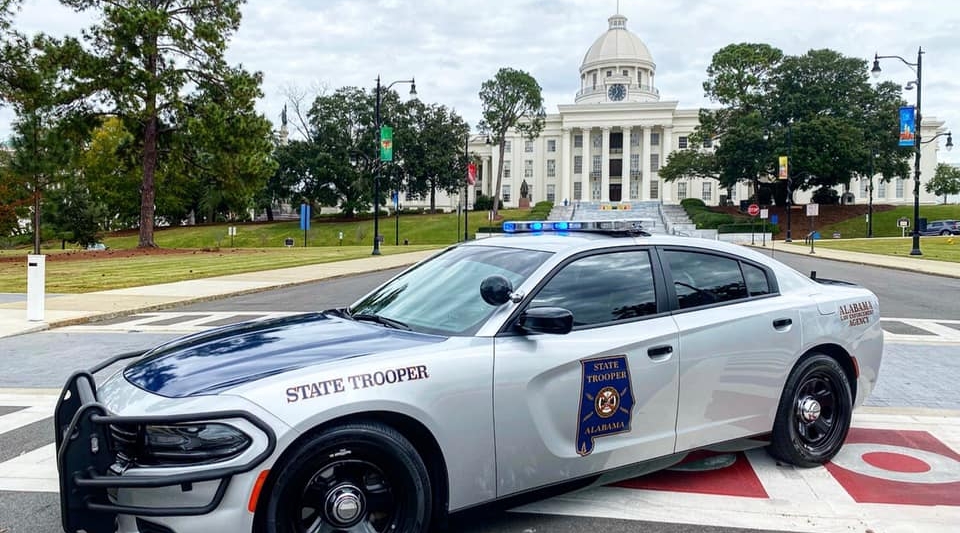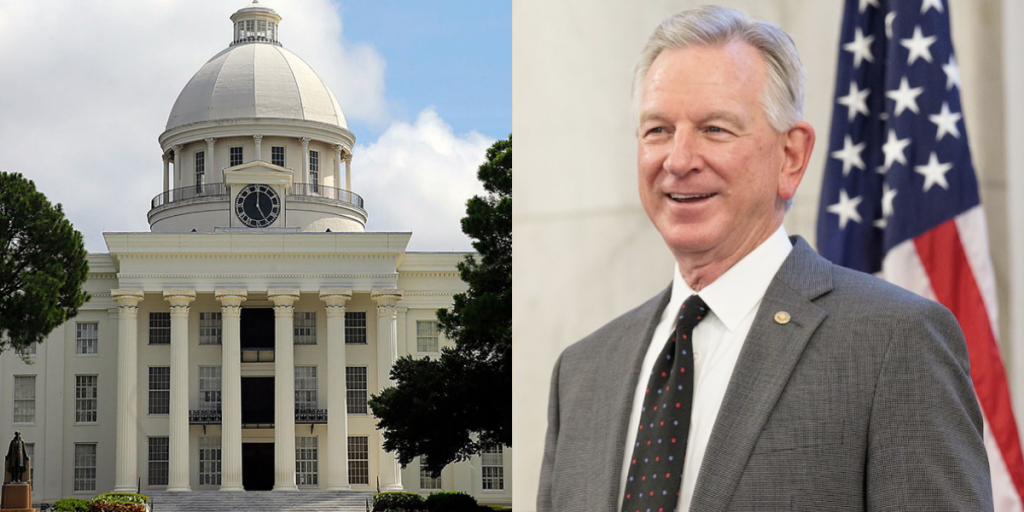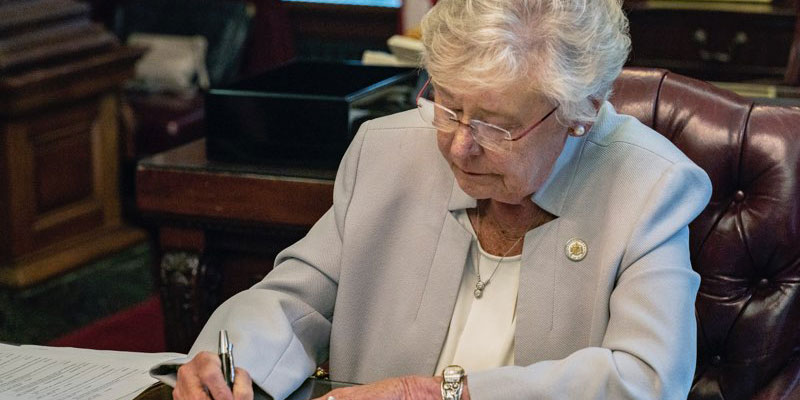Yellowhammer Multimedia on Tuesday released the second class of the Yellowhammer 15, the preeminent honor for those in the private sector that are moving Alabama forward to better days.
The class of 2021 follows the inaugural class of the Yellowhammer 15, which was launched in 2019.
Unlike Yellowhammer’s annual Power & Influence 40 list, a person can be recognized in the Yellowhammer 15 only once in a lifetime. Not only will this honor be exclusive, but the accumulation of inductees over time will also compile a “hall of fame” type list synonymous with the pinnacle of professional and civic achievement.
Through job creation, economic impact, community involvement and philanthropic endeavors, these exemplary leaders in their professional fields make our great state a better place to live, work and raise a family:

Patricia “Sister Schubert” Barnes
Patricia “Sister Schubert” Barnes is a true homegrown success story in the state of Alabama.
Sister began baking her rolls, commercially, on her sun porch at home in Troy, Alabama. When the 100-year old family recipe gained popularity, she moved her operation to her father’s furniture warehouse.
All the while, she marketed her unique product the old-fashioned way – she loaded up her wood-paneled station wagon with frozen bread products and delivered them personally to grocery stores.
Then in 1994, she opened a bakery facility in Luverne, Alabama, that quickly grew to an 80,000 square-foot facility. Then in 2000, she sold her stock to Lancaster Colonial Corporation.
Sister is the official culinary ambassador for the state of Alabama. She is on the board of the Alabama Women’s Hall of Fame and a member of the Alabama Business Hall of Fame.
Service to others is as much her product as her rolls.
From the beginning, her rolls allowed her to provide something to those in need. From food banks to animal shelters – she helps charities using her gifts.
In 2011, Sister Schubert trucks delivered more than $500,000 in donated food after the tornadoes. In order to avoid laying off employees during slow times at Christmas, she has turned bakeries into assembly lines for toys and blankets for needy families.
Sister has taken service to her state to heights rarely seen.
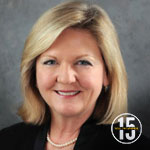
Deborah Barnhart, Ph.D.
Dr. Deborah Barnhart has achieved widespread acclaim for her generational leadership as CEO of the U.S. Space and Rocket Center, a role through which she was the public face of and mastermind behind Alabama’s top tourist attraction.
However, her story goes well beyond her nine-year transformational tenure leading the Space and Rocket Center, which is the largest spaceflight museum in the world, the Official Visitor Center for NASA’s Marshall Space Flight Center and an affiliate of the Smithsonian Institution.
Barnhart’s illustrious career spans four decades of service across commercial industry, government, aerospace and defense.
She earned her doctorate at Vanderbilt University and also holds degrees from the University of Alabama in Huntsville, the University of Maryland and the Massachusetts Institute of Technology, where she was a Sloan Fellow.
Barnhart’s resume includes 26 years of service in the military — achieving the rank of captain in the U.S. Navy and becoming one of the first 10 women certified to serve aboard Navy ships. Before she served as CEO of the Space and Rocket Center from 2010 through 2019, she worked three other stints there, including as the director of Space Camp and Space Academy from 1986 until 1990.
In between her Space and Rocket Center gigs, she served as vice president of three Dow 30 aerospace and defense companies, including for what is now Boeing.
Named a Yellowhammer Woman of Impact in 2018, Barnhart is a recipient of NASA’s Distinguished Public Service Medal, the highest form of recognition awarded by NASA to a non-governmental individual.
She has been an active civic leader in the Tennessee Valley as well, including through her service as a trustee on the board of the UAH Foundation. She has also been a member of the Smithsonian Affiliations Advisory Council.
Barnhart now serves as CEO emeritus of the Space and Rocket Center following her retirement in December 2019.
John Nerger, chairman of the Alabama Space and Science Exhibit Commission, at the time praised Barnhart’s “strong leadership, creative vision, devoted service and unmatched legacy.”
“She has earned the respect and admiration of so many throughout the Tennessee Valley, the State of Alabama and across the country,” he added.

Louis Breland
The Huntsville area’s rocketing growth is certainly no secret in Alabama – or across the nation.
However, a lesser-known fact is the revolutionary role that real estate developer Louis Breland has played in the region’s incredible growth.
Breland, who has been called a serial entrepreneur, is perhaps best known recently as the developer behind Town Madison, which is anchored by the Trash Pandas’ minor league baseball stadium.
His start in Alabama real estate, nevertheless, actually began along the Gulf Coast with a homebuilding company he owned in the 1970s.
With then-President Ronald Reagan pouring money into the military, defense and aerospace sectors in the early 1980s, Breland decided to visit Huntsville – then a much smaller community. During that visit, Breland witnessed a booming market and saw the massive potential for exponential growth to come – and the rest, as they say, is history.
Since then, Breland has been an integral part of positive, strategic growth for Huntsville, Madison and surrounding areas. With all of the jobs and industry popping up, there has been corresponding demand for residential, commercial and entertainment options to recruit needed workforce and create an environment in which families can prosper.
Luckily for the Tennessee Valley, Breland has been a step – or three – ahead of the curve. His visionary leadership in the development space has helped make the Rocket City one of the hottest places to move around the country and reinforced Huntsville’s nickname as the “Star of Alabama.”
Overall, Breland – while active civically and philanthropically — has developed more than 30,000 single/multi-family homes and lots as well as office buildings, high-rise condominiums, retail centers and self-storage facilities throughout Alabama and the Southeast. He has sold three of his companies to members of the New York Stock Exchange.
A recipient of the Huntsville/Madison County Chamber of Commerce’s Excellence in Leadership and Service award, he sold Breland Homes in 2012, when it was ranked the 38th largest homebuilder in the United States by Builder Magazine. However, he has only picked up steam since then through Breland Companies and Smart Living.
With Huntsville continuing to boom, expect Breland to be a major part of the area’s success for years to come.

Angus Cooper, III
Angus Cooper, III has rapidly become one of Alabama’s top titans of industry. However, he has also cemented himself as a selfless leader in various nonprofit, civic and sustainability causes, as well.
As president of Cooper/T. Smith, Cooper is the fourth generation in his family to run the iconic Mobile-based company — one of America’s oldest and largest stevedoring and maritime related firms with operations on all three U.S. coasts and international operations in Mexico. The company maintains ownership in numerous satellite entities, including in the timber and forest products industry.
Through its maritime transportation and logistics enterprises, Cooper/T. Smith impacts a tremendous array of industries throughout the world, from agriculture, energy and chemicals to construction, food service and tourism. Overall, the company has diversified its business interests, which now include warehousing, terminal operations, tugboats, push boats, barging, barge fleeting, floating terminals, logistics, marine and timberlands, vessel repair and restaurants.
In addition to his leadership of the company, Cooper is well known for donating his time and talent to serve a myriad of organizations in the Mobile area and around the state.
He is past chairman of the Alabama State Port Authority, current chairman of the Business Council of Alabama’s ProgressPAC and serves on the board of directors for Alabama Power Company, the Economic Development Partnership of Alabama and Bryant Bank, among others.
Known as an avid conservationist, Cooper has served on the Alabama Wildlife Federation board of directors for 20 years, including two years as president. He is also on the Delta Waterfowl board of directors.
Cooper could be a major player in Alabama’s corporate and civic spaces for decades to come. While he has already reached the zenith of achievement, Cooper’s ascent is seemingly never over.
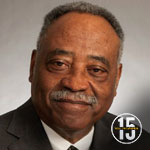
John England, Jr.
There are few, if any, that embody the spirit of Alabama more than Judge John England, Jr.
A native of Uniontown who grew up in Birmingham, England received his bachelor’s degree in chemistry from Tuskegee University. He then became one of the first-ever African-American students admitted to the University of Alabama School of Law, where he earned a law degree in 1974. He also received an Honorary Doctor of Laws degree from Tuskegee some 25 years later.
The exhaustive list of England’s career and civic accomplishments is too long to include here, but every single one of the innumerable bullet points on his CV come back to an unrelenting passion for serving his fellow citizens. He served in the U.S. Army as a Military Policeman during the Vietnam War, served two terms on the Tuscaloosa City Council, and served about 28 years combined as an associate justice on the Supreme Court of Alabama and circuit judge on the Sixth Judicial Circuit.
Since 1998, England has also represented the Seventh Congressional District on the University of Alabama System board of trustees. His tenure has been marked with incredible successes for the System and its three distinct institutions, however it is what England’s colleagues have to say about him that best captures his profound impact.
UA System Trustee Emeritus John McMahon has said, “When I think of Judge England, I don’t have the words to express what John has meant to the board of trustees, to the University of Alabama, to UAB, to UAH. He was the heart and soul of the board of trustees while I served.”
England’s legacy at the Capstone, among other ways, is reflected by a brand-new dormitory now bearing his name.
Yet, the barriers England has broken – and doors he has opened for those following him to access – can never be properly put into words. At a place that is known for creating them, Judge England stands above the crowd as a legend for the ages.
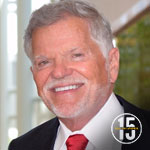
Jim Hudson
Alabama is home to legends that not only reach for the stars, but take us there time and time again.
There is no better exemplar of the state’s bold spirit of curiosity and ingenuity than Jim Hudson.
A native of Huntsville, Hudson received his bachelor’s degree in Chemistry and a master’s degree in Physics from the University of Alabama, as well as a master’s degree in Biology from the University of Alabama in Huntsville.
Equal parts entrepreneur and scientist, Hudson’s life has been marked by selfless service. It began in Tuscaloosa at his alma mater, where he served in the ROTC. After graduating, he served as an officer and pilot in the U.S. Army during the Vietnam War. During his tour, Hudson flew many missions over North Vietnam, earning the Distinguished Flying Cross — the highest honor awarded to a military aviator.
The experience shaped his life and, as a result, changed the course of history for all of mankind.
In 1987, Hudson founded Research Genetics, which quickly blossomed into a biotechnology business juggernaut. The company was a chief partner in the Human Genome Project, the international effort coordinated by the U.S. Department of Energy and the National Institutes of Health to identify the sequence of the DNA found inside human cells. Simply put, this initiative was the ultimate pursuit of knowledge at the time; the real-world advances that stemmed from the knowledge and data resulting from the Human Genome Project are innumerable, having profound positive impacts on not only human health and disease but also diverse fields like renewable energy development, food and agriculture, and industrial biotechnology.
Hudson led Research Genetics until 2000, when he sold the company – then the world’s leader in genetic linkage products — in a deal valued at $138 million.
From there, Hudson co-founded the HudsonAlpha Institute of Biotechnology in Huntsville, a nonprofit which continues to carry the torch of the work Hudson started at Research Genetics. To this day, Hudson continues to chair the institute, with a core mission to use biotechnology to improve human health, stimulate economic development and inspire Alabama’s youth to seek careers in science.
HudsonAlpha is at the center of the Rocket City’s growing biotech campus, as well as the state of Alabama’s burgeoning innovation ecosystem. The institute works in close proximity to researchers to bridge the gap from the laboratory to life applications, making landmark strides when it comes to understanding diseases and improving health.
Throughout his career, Hudson has also advised and incubated many other successful companies from internet services to genetics research that focus on benefiting society.
Governor Kay Ivey has said, “HudsonAlpha is a critical component to Alabama being in position to expand our bioscience activity. The positive impact of HudsonAlpha and the 40-plus biotech companies to Alabama’s economy is remarkable, but there is so much more that they do for our state. HudsonAlpha is making breakthroughs on cancer, working with Alabama farmers for better crops, diagnosing rare diseases for children and educating students, teachers and the public. I can’t wait to see what’s next for HudsonAlpha.”
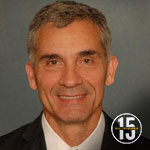
Del Marsh
Del Marsh has attained the rare status of having his contributions to the betterment of the state measured as both a public servant and a successful entrepreneur.
As a public servant, Marsh is the type for which the electorate often craves and our founding fathers envisioned. Marsh originally ran for office simply because his state senator was not responsive to the needs of small business. Once elected, Marsh became a tireless advocate for greater efficiency in government.
During his decade of service as President Pro Tempore of the Alabama Senate, Marsh built a record of pursuing common sense solutions to the problems facing our state. He led the charge to provide education freedom to Alabama families; he formulated the largest reductions to the size of state government in history, and no one has cut taxes and red tape for small businesses quite like Marsh.
Then there is the entrepreneurial spirit which drives Marsh.
Aerospace Coatings, which he founded, became a renowned international supplier for its industry right from its home in Calhoun County, Alabama. Contractor, developer and investor, Marsh seemingly has the Midas touch when it comes to his business ventures.
He is as comfortable in a tree stand as he is a committee room and feels as much at home in his machine shop fabricating gun parts as he does working in a boardroom.
Marsh’s particular brand of leadership only comes around every so often. Alabamians would be wise to take it in and stop to appreciate his contributions to the Yellowhammer State.
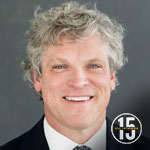
John Mazyck
John Mazyck is the owner of a business whose mission is to facilitate growth in both the public and private sectors. His firm is The Frazer Lanier Company, an Alabama-based investment banking firm, one which owns the largest market share of investment banking business in the state.
While Mazyck has been involved in numerous major economic development projects across Alabama, it is his firm’s work helping local communities secure funding that continues to have a lasting impact on the state.
Guiding cities and counties through the process of issuing bonds for critical infrastructure, rural hospitals and schools has been a staple of his activity in the state for many years.
Participating in state and local policymaking is a priority for Mazyck. He is a member of the Business Council of Alabama executive committee, having served a term as chairman of the state’s largest business organization. He is a board member of the Montgomery Area Chamber of Commerce, the board of the Jackson Hospital Foundation and the board of the Montgomery Community Development Foundation. He is a 2019 graduate of Leadership Alabama.
Mazyck has positioned himself to exercise significant influence on how Alabama’s cities, counties and job creators prepare for the 21st-century economy.
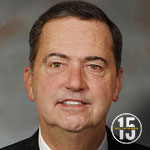
Charles McCrary
Charles McCrary is an icon in the Alabama business community.
The retired chairman, president and CEO of Alabama Power completed an illustrious career at the company in 2014. It was a career which earned him induction into the Alabama Business Hall of Fame.
Yet, he has continued his service to Alabama and the advancement of its economic prosperity in the years that have followed.
McCrary is now the chairman of the board of Regions Financial Corp. and Regions Bank. Headquartered in Birmingham, Regions is one of Alabama’s largest employers and the state’s only Fortune 500 company.
McCrary has exhibited the same advanced leadership in his community and numerous institutions committed to moving the Yellowhammer State forward.
A zealous advocate for Auburn University and its essential role in the development of our state, McCrary has completed two seven-year terms on the university’s Board of Trustees. The university recognized McCrary for his contributions with its naming of the McCrary Institute for Cyber and Critical Infrastructure Security.
His service on boards of directors has extended to the Children First Foundation, the Birmingham Museum of Art and the Alabama Archives and History Foundation.
An avid outdoorsman and protector of Alabama’s environment and natural resources, McCrary has served on the board of the National Fish and Wildlife Foundation.
McCrary continues to build on his hall of fame career to the benefit of the state of Alabama.

David Pursell
From his family’s property in East Alabama, David Pursell has guided the evolution of a company which is one of Alabama’s most celebrated success stories.
The land is a crown jewel property within the Southeast United States. And the company is what happens when Alabamians dream big.
What began as the Sylacauga Fertilizer Company, became an international supplier of cutting-edge agricultural technology. Founded in 1905, by Pursell’s great-grandfather, the company developed and patented technology which is now used in fields, golf courses and nurseries around the world.
When Pursell took the reins at the company nearly 25 years ago, he began implementing an innovative sales and marketing strategy which has ultimately resulted in his family’s land becoming a travel destination.
To demonstrate the benefits of his company’s agriculture technology, Pursell developed his family’s land into the world-class FarmLinks golf course at Pursell Farms.
Thousands of visitors have now made their way across the country and the world to Sylacauga to see the stunning views and play golf at Pursell Farms.
Pursell’s contributions to the state go well beyond the course. Crediting his parents, the late Jimmy and Chris Pursell, with setting an example with their philanthropic spirit, David Pursell has set out to engage in life’s worthwhile pursuits.
The four pillars of faith that Pursell incorporates into his business are: honor God first, respect our employees, serve our guests with excellence and honor our owners.
Vapor Ministries, whose mission is to bring social, economic and spiritual life to communities dying from extreme poverty, is headquartered at Pursell Farms.
Pursell and his family exemplify all that is beautiful about Alabama.
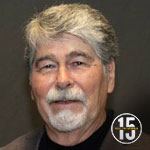
Randy Owen
Perhaps no one has more visibly served as an ambassador for his home state than the man whose band bears its name.
Randy Owen is a son of DeKalb County and a generational music talent who will forever be a part of the state’s cultural identity.
Owen and his band released 21 gold, platinum and multi-platinum albums as well as forty-two number one singles before announcing retirement in 2002. The band also has a star on the Hollywood Walk of Fame. They were named the Academy of Country Music’s Artist of the Decade in 1989 and the Recording Industry Association of America’s Country Group of the Century in 1999. Alabama was inducted into the Country Music Hall of Fame in 2005.
Owen, though, has been a stalwart philanthropist upon whom his fellow Alabamians can depend.
For two and a half decades, Owen and his fellow band members put on the June Jam to benefit countless charities and schools. The band has been the recipient of numerous humanitarian awards, as well as the Spirt of Alabama medal.
Owen and his wife, Kelly, helped fund the Kelly Owen Women’s and Children’s Pavilion at DeKalb Regional Medical Center, and his golf tournaments have raised more than $1 million for the Alabama Sheriffs Departments Youth Ranches.
He is also co-chair of the World Games 2022 in Birmingham, an event poised to leave a tremendous impact on the state’s economy.
Owen has left an indelible mark on his home state of Alabama.
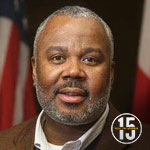
Quinton Ross, Ed.D.
The 15th president of Alabama State University has implemented a bold vision for his alma mater since taking the helm in 2017.
Dr. Quinton Ross possesses a keen understanding of the role Historically Black Colleges and Universities have played in Alabama’s history and the necessity to strengthen these vital institutions as the state moves further into the 21st century.
Ross has focused intensely on fundraising for the school. That focus, and the clout that he brings to the position, have resulted in a 130% increase in donations through individuals, corporations and other appropriations.
Following his mantra “Moving ASU 150 years forward,” the former four-term state senator has opened doors for the university’s students through partnerships across Alabama, the nation and the world.
Under Ross’ leadership, the university has obtained a grant from the Department of Defense to establish a state-of-the-art research facility. A Hyundai partnership has enhanced the studies of ASU STEM students through the use of a first-of-its-kind hydrogen fuel cell vehicle. ASU has teamed up with IBM to establish the nation’s first quantum education and research initiative for Historically Black Colleges and Universities. And, recently, two ASU students were among the first enrolled in a prestigious cybersecurity and STEM training program at the U.S. Army’s Space and Missile Defense Command in Huntsville.
Not surprisingly, Ross’ work has earned him national recognition as an expert on the future of Historically Black Colleges and Universities, and he was elected by his peers in the Yellowhammer State to serve as vice chairman of the Alabama Commission on Higher Education’s Council of Presidents.
Ross’ efforts at one of Alabama’s most valuable institutions of higher learning stands to make a difference for current and future generations.

Terry Saban
If you follow college football at all, or even if you don’t in Alabama, you’ve probably heard of “Miss Terry.”
The endearing nickname for Terry Saban underlines a simple truth: she is the head coach of Crimson Tide head football coach Nick Saban’s household.
After all, who can forget when Coach Saban told the story about how if Miss Terry had married her ex-boyfriend instead, he’d now be the one coaching the Tide.
However, her impact goes well beyond athletics and the tremendous economic impact therein.
The first lady of Alabama football has become one of the state’s top philanthropists, making an impact in West Alabama and beyond through civic, charitable and volunteer service.
As the co-founder and CEO of the Nick’s Kids nonprofit foundation, Terry Saban has helped raise almost $10 million for a litany of worthwhile local causes dedicated to children in the Yellowhammer State and Coach Saban’s other career stops.
In West Alabama alone, Nick’s Kids has completed projects including the career tech classrooms at the Tuscaloosa County Juvenile Detention Center, the Tuscaloosa Riverwalk Playground, renovating the STTEP Building of Brewer Porch Children’s Center, building 17 Habitat for Humanity homes and the Alberta School of Performing Arts playground. The foundation is also a major donor of the Tuscaloosa All-Inclusive Playground, the Saban Center and the YMCA of Tuscaloosa.
A former teacher herself, Terry Saban also serves on the Stillman College board of trustees and is a major supporter of educators and students through her diverse range of philanthropic activity. She serves on the local Tuscaloosa board for SmartBank, as well as numerous community non-profit boards and committees.
The positive impact Miss Terry has on the University of Alabama community, the Tuscaloosa area and the entire state will be felt for generations to come.
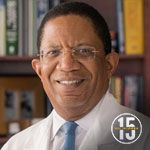
Selwyn Vickers, M.D., FACS
Dr. Selwyn Vickers is a world-renowned medical mind sculpted right here in Alabama.
Born in Demopolis, Vickers grew up in Tuscaloosa and Huntsville before earning baccalaureate and medical degrees from Johns Hopkins University. He also completed surgical training there, including a chief residency and surgical oncology fellowship. Vickers’ impressive pedigree was then augmented by the completion of two post-graduate research fellowships with the National Institutes of Health and training at John Radcliffe Hospital of Oxford University. After serving as an instructor of surgery at Johns Hopkins for one year, he returned home to Alabama, where he started his first stint at the University of Alabama at Birmingham (UAB) in 1994.
Vickers in 2006 left UAB when he was named the Jay Phillips Professor and Chair of the Department of Surgery at the University of Minnesota Medical School, one of the oldest, most prestigious departments in the country.
His home state called once again in 2013, when Vickers was named Dean of the School of Medicine and Senior Vice President for Medicine at UAB. He has served in these roles since then, and next year he will also add the title of CEO of both UAB Health System and the UAB/Ascension St. Vincent’s Alliance to his responsibilities. UAB operates one of the 10 largest public academic medical centers and the third largest public hospital in the U.S.
Throughout his journey, Vickers has received numerous accolades as a practicing doctor, professor and researcher. He is especially recognized across the globe for his service as a pancreatic cancer surgeon, pancreatic cancer researcher and pioneer in the study of health disparities.
The internationally acclaimed doctor also serves in a variety of leadership roles across the Yellowhammer State, including as chair of UAB Medicine’s Joint Operating Leadership Committee as well as the University of Alabama Health Services Foundation Board. He is a member of the National Academy of Medicine (Institute of Medicine), the Johns Hopkins Society of Scholars and Alabama Power Company’s board of directors.
Vickers previously served on the Johns Hopkins School of Medicine board of trustees and Johns Hopkins University board of trustees. He has served as president of the Society for Surgery of the Alimentary Tract and of the Southern Surgical Association and is president-elect of the American Surgical Association.
Of course, Vickers has played crucial roles in responding to the COVID-19 pandemic across the state — and the nation. He served as co-chair of the University of Alabama System’s related task force, as well as on the executive committee of Governor Kay Ivey’s coronavirus task force.
Once named “America’s Top Doctor,” Vickers is a shining star of the transcendent bio tech and research ecosystem forming in the Magic City. His service has saved countless lives and continues to make Alabama proud on the world stage.
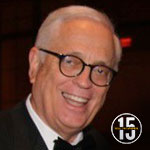
Edgar Welden
Sports, and the Alabamians who have played them, are as tightly woven into the state’s culture as anything else which makes us unique.
Joe Louis, Jesse Owens, Satchel Page, Bart Starr, Will Mays, Hank Aaron, Ken Stabler, Bo Jackson, Charles Barkley and Mia Hamm are but a few native Alabamians who enjoy legendary status in the world of sports. Not to mention the fact that our state collectively puts out the “Do Not Disturb” sign on Friday nights and Saturday afternoons in the fall.
No one has done more to promote Alabama sports, at all levels of participation, than Edgar Welden.
Welden is the chairman of the board of directors of the Alabama Sports Hall of Fame, and the group named him a Distinguished American Sportsman in 2016.
In addition to a successful business career, Welden founded the Birmingham Athletic Partnership, a non-profit that helps fund equipment, education and facilities for sports and other extracurricular activities for middle schools and high schools.
He has served as the chairman and president of the Bryant-Jordan Scholarship Program which annually awards more than 100 college scholarships to high school senior student-athletes.
Welden also co-chaired the committee that submitted the winning bid for the World Games 2022, beating out Russia and Peru. In what will surely be a huge economic boon for Alabama, the World Games will take place in the United States for the first time since the inaugural event in Santa Clara, California in 1981.
Having grown up playing football, basketball and baseball in his hometown of Wetumpka, Welden later became an avid tennis player. It was that sport which carried him to all 67 of Alabama’s counties in 2003 to promote the Alabama Sports Hall of Fame. When tennis courts were unavailable, he played in the street and once played in the hallway of a courthouse.
Welden’s steadfast service to his state has not gone unnoticed by his fellow Alabamians. He is a member of the Alabama High School Athletics Association Hall of Fame and the Alabama Academy of Honor. He has received the Alabama Humanities Award and the University of Alabama’s Distinguished Alumni Award
Edgar Welden’s place of honor among Alabamians who have contributed to the well-being of their state has been carved in stone.









